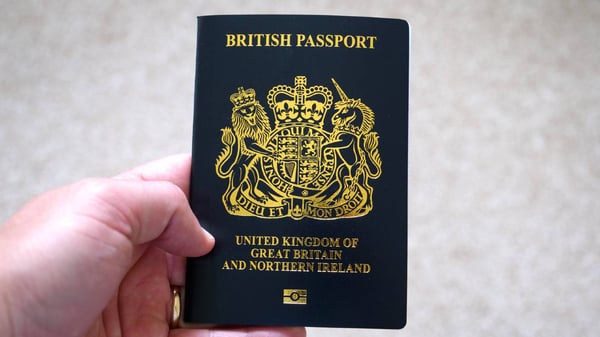You may dream of moving abroad in search of a bigger salary, higher quality of life, or simply better weather. What as many as 96 percent of expats don't anticipate, however, is how gruelling expat life can be mentally. Expat depression and mental health issues are recurring, yet somewhat hidden, challenges that many people don't consider before living and working overseas. Luckily, the importance of mental wellbeing is growing and it's easier to find resources for coping or for getting professional help.
Sending money overseas? Save money when you send money with CurrencyFair's low-margin FX rates.
What is expat depression?
If you're feeling despondent and isolated when you thought you'd be immersed in an exciting new lifestyle, expat depression may be the cause. According to expat psychologist Gabriela Encina, people living abroad are 2.5 times more likely to suffer burnout, anxiety and depression than non-expats.
Part of the problem is what psychologists refer to as “hedonic adaptationâ€. After a honeymoon period in which the surroundings feel exotic, the food and language enchanting, and the local culture quirky and fascinating, we quickly revert to an emotional baseline. Quite simply, the novelty wears off. We discover that visiting a destination on vacation and wrestling with its systems as a resident are two very different realities. There may even come a point where we question our decision to emigrate entirely.
How expat life can put our wellbeing to the test
The Instagram version of expat life, bursting with hammocks and infinity pools, is a snapshot of life abroad, not the big picture. In reality, you'll be spending hours in line to set up bank accounts and apply for residency permits and visas. Over time, living abroad will inevitably present these obstacles to overcome:
Loneliness. As many as 50% of expats are at risk of mental health issues, with the ‘loss of a support network' a critical factor. The lack of a familiar face or friend group to turn to can be draining, and expat life is especially hard on accompanying spouses who don't have the professional network to support them.
Culture shock. Research by the University of Maryland confirms that problems are more pronounced when there is a greater cultural difference between home and host countries. It's not just a question of local etiquette or what's for breakfast. There could be a big disparity in gender roles, work culture, or freedom of speech to adapt to.
Language barrier. While you're still learning the language (or even the alphabet) of your host country, you're missing out on the release of self-expression. Even once you're proficient in the language, the nuances, and idioms of your country might be frustratingly out of reach. Living life ‘on mute' can seriously impact our wellbeing.
Financial uncertainty. Expat life, at least initially, tends to be characterised by rented accommodation, temporary work permits, and a reliance on savings in the absence of access to credit. While your quality of life might enjoy an initial boost, the nagging anxiety of not yet being fully part of the financial system can wear down your mental health.
The hardest countries for expats
Are some countries simply harder to adapt to when it comes to living and working abroad? If you're looking for the smoothest transition to life abroad, Mexico tops the list according to a 2022 study by InterNations, with Portugal, Spain and Australia also featuring in the top ten.
By contrast, the same study found that Kuwait was the hardest country to settle in, based on the difficulty of expressing opinions freely, quality of social life, and perceived attitude of locals. The challenges of adapting to Gulf life in general explain why many employers limit contracts to no more than two or three years.
Surprisingly, Sweden and Norway also received negative ratings, with 63% of expats in the former noting the difficulty of finding friends, and 28% of expats in Norway simply not feeling welcome. While the Nordic countries consistently top the polls for the world's happiest countries, access isn't necessarily instant.
German-speaking countries also performed poorly, with Germany, Switzerland, and Austria all receiving low scores for the ease of finding friends, local friendliness, and overall welcome. These are all countries where expats typically report a positive experience overall, but closing the gap between immigration and integration remains a challenge.

Photo by Humphrey Muleba
5 tips to take care of your mental wellbeing overseas
With a disclaimer that we're experts in bank-beating exchange rates, and that personal experiences will depend on individual circumstances, these are some of the most common ways expats cope with life abroad.
Manage expectations
Accept that life overseas, just like in the home country you're leaving, can be monotonous, mundane, and frustrating. When the initial glow wears off, it doesn't mean that you've made a mistake. It's a sign that you've progressed from tourist to expat.
Talk to your employer
Many expats assume that they'll jeopardise a dream opportunity by admitting to their employer that they're struggling to adapt. In fact, your employer has a vested interest in your success, and should have resources available to help you transition (especially for multinational companies). Ask your employer about language courses, spousal support, or social networks affiliated with the company.
Find your local expat network
Some expats stubbornly resist making connections with their fellow citizens abroad, feeling that it will compromise their new adventure. In the early months, however, local expats are an essential source of advice and support when it comes to finding accommodation, knowing your rights, avoiding local taboos, and navigating bureaucracy.
Get out and exercise
When you consistently feel like an outsider, it's tempting to hole up inside. Going out for a walk, run, or swim or joining a local sports and social club will give you a natural happy hormone boost, however. It will also help you explore and become a familiar face in your neighbourhood.
Moderate social media
If you find yourself living near one of the world's most visited tourist attractions, there's no shame in a selfie or two, but the pressure of documenting your new life on social media can drain your mental wellbeing. Use social media to let those back home know you're safe and sound, of course, and to connect with local expats, but see what happens when you switch off your smartphone and immerse yourself in your new surroundings.
Expat mental health formalities
Mental health can be a nebulous concept with no clear baseline from one person to another. In terms of your insurance cover, however, it's expressed in black and white. Make sure your expat insurance covers mental health support and register with a local provider or professional once you're abroad.
Expat insurance specialist William Russell warns that mental health cover is not always part of international health cover and that premiums may be higher. Some insurers will even apply an exclusion to your policy if you've seen a counsellor or psychologist within the previous two years. For that reason, it's important to make a full disclosure of your medical history when applying and check that your cover extends to mental health unit admission or consultations with a psychiatrist.
The overall guideline to follow is that the challenges of expat life are not to be underestimated. You can't anticipate them all, but you can take control of your financial integration with CurrencyFair. Sending money overseas at our bank-beating rates and fixed fees means you can expect to have more local currency available than if you'd chosen conventional banks. That can mean a treat or two to pick you up when your mood is down.
Sending money overseas? Save money when you send money with CurrencyFair's low-margin FX rates.
This article is purely for general information purposes. Photo by Sasha Freemind on Unsplash









.jpg?width=600&name=christian-allard-RlNXFBkOU2k-unsplash%20(1).jpg)



